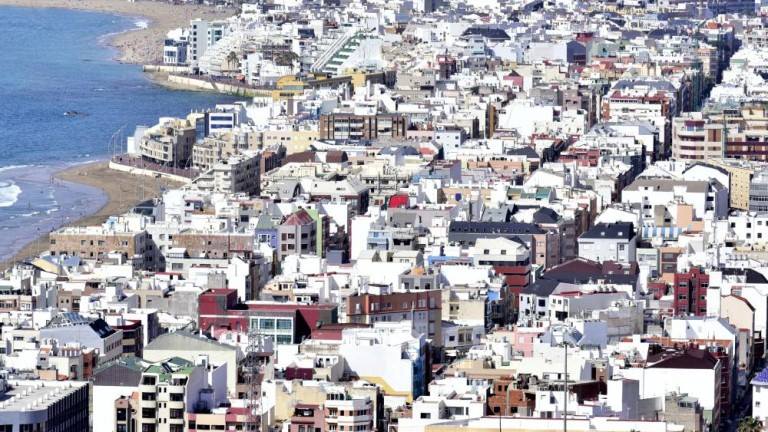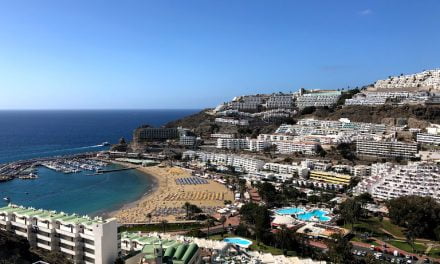 The Canary Islands will not change the current regulations on holiday home rentals at this time, at least not during this legislature. The socialist party PSOE announced last Thursday that they will request a postponement of the debate around the bill after negative opinions were expressed by the Advisory Council of the Canary Islands Regional Government. The decision leaves too little support for the proposed changes to the law to go ahead, as this week’s parliament plenary will be the last one of the IX Legislature. In addition, Coalición Canaria (CC) and Nueva Canarias (NC), who were the original promoters of the reforms, do not have a majority in the Chamber.
The Canary Islands will not change the current regulations on holiday home rentals at this time, at least not during this legislature. The socialist party PSOE announced last Thursday that they will request a postponement of the debate around the bill after negative opinions were expressed by the Advisory Council of the Canary Islands Regional Government. The decision leaves too little support for the proposed changes to the law to go ahead, as this week’s parliament plenary will be the last one of the IX Legislature. In addition, Coalición Canaria (CC) and Nueva Canarias (NC), who were the original promoters of the reforms, do not have a majority in the Chamber.
The proposed text that came out from the Parliamentary Tourism Commission unleashed controversy on both sides of the debate around tourism home leasing, led by the Canary Islands Vacation Rental Association (Ascav) and the Association of hotel management Ashotel. So, for now, those who oppose the new stricter regulations have, it seems, won the latest battle regarding who should or should not be allowed to rent private apartments and houses, short term, to tourists; and on what basis. The opinion expressed by the Advisory Council was essential for the bill’s passage through the regional parliament, primarily supported by the political parties Coalición Canarias CC, Nueva Canarias NC and Socialist Party PSOE; and in turn the proposed bill was rejected by the Progressives Podemos and the conservative PP.
 The Canary Islands’ Parliament’s Advisory Council, said in its view several sections of the proposed new law appeared unconstitutional and that many other questions were raised by the proposals, leading to this latest decision from PSOE to no longer back the text in its current form, so blocking the process until, at the earliest, the new legislature which will begin again in June, following Spanish National Elections, scheduled for April, and the local municipal elections, set for May.
The Canary Islands’ Parliament’s Advisory Council, said in its view several sections of the proposed new law appeared unconstitutional and that many other questions were raised by the proposals, leading to this latest decision from PSOE to no longer back the text in its current form, so blocking the process until, at the earliest, the new legislature which will begin again in June, following Spanish National Elections, scheduled for April, and the local municipal elections, set for May.
“The intention to combine with greater efficiency the rights of small proprietors and the general interest to guarantee access to housing for the people with lower rents is evident”, explained PSOE deputy Rosa Cabrera Noda. Cabrera regretted, however, that the Government of the Canary Islands has been “unable” to move forward, “once and for all”, with the decree on holiday rentals, despite knowing the damage that it causes for the traditional housing market.
The primary reason that the Holiday Homes Decree is so very important is because of the rise of internet platforms, among others, which allow private home owners to offer their holiday rental properties much more easily than ever before. This has led to sudden and disproportionate increases in rental values and potentials which too often price native locals out of the rental market, quickly followed by foreign resident workers, and then all urban long term residents; as property owners scramble to earn quick money from short term tourism rentals.
The laws on renting to tourists are pretty clear. If you are in a designated tourist zone, like Puerto Rico or much of Playa del Inglés, then your property must, by law, be managed by a licensed tourism operator. If however your property is in a normal urban or residential area then very few regulations exist other than the requirement to properly declare your earnings, and it is preferred that the property is licensed under the system of Viviendas Vacacionales “Holiday Homes” regulated by the Government. However, outside tourism zones, it is perfectly legitimate for private owners to rent short term to whomsoever they want.
Those who oppose the new regulations, which are focused on private rentals to tourists, particularly in tourism zones, often do so on the basis that the new proposals seem to favour big business over individuals, or conversely because they may hinder small property owners from having free access to the market otherwise controlled only by larger players. Those who argue in favour of the new regulations do so on the basis of trying to protect ordinary working citizens who have a constitutional right of access to affordable rented properties and without protection face having to move away from their own communities, or having to live far from their places of work, because landlords are more focused on the high gains possible from short term tourism rental, than they are focused on long term rentals to low income families.
What are your thoughts?













